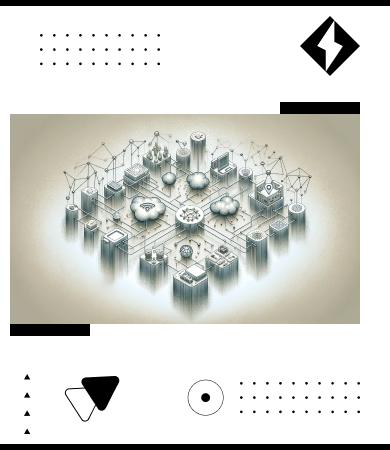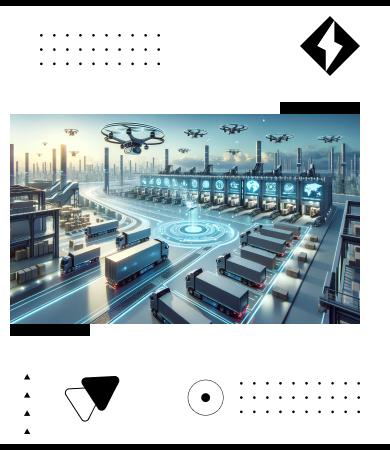Support center +91 97257 89197
Event Marketplace DevelopmentMay 21, 2024
Exploring DAOs for Community-Driven Event Planning and Management

Introduction
The landscape of event planning is evolving rapidly, with technology playing a pivotal role in transforming how events are organized and managed. One of the most groundbreaking innovations in this domain is the use of Decentralized Autonomous Organizations (DAOs). DAOs leverage blockchain technology to enable transparent, decentralized, and community-driven decision-making processes. This blog delves into how DAOs can revolutionize event planning and management, offering a comprehensive guide for setting up a DAO, exploring successful case studies, and discussing future trends and challenges.
Understanding DAOs
Definition and Core Principles
A Decentralized Autonomous Organization (DAO) is an organization represented by rules encoded as a computer program that is transparent, controlled by organization members, and not influenced by a central government. DAOs operate on blockchain technology, ensuring that decisions are made collectively and autonomously via smart contracts. These smart contracts execute pre-defined rules, enabling automated, trustless transactions and operations.
How DAOs Operate
DAOs function through a combination of smart contracts and token-based voting systems. Smart contracts are self-executing contracts where the terms are directly written into code. These contracts automate workflows and decisions, reducing the need for intermediaries. Members of a DAO hold tokens that represent voting power, allowing them to propose and vote on various initiatives, such as event planning details or budget allocations.
Key Benefits of DAOs
- Transparency: All transactions and decisions are recorded on the blockchain, providing a transparent audit trail.
- Decentralization: Decisions are made collectively by members rather than a central authority.
- Community Engagement: DAOs foster a sense of ownership and engagement among participants, as they have a direct say in the organization’s operations.
DAOs in Event Planning
Revolutionizing Event Planning
DAOs can significantly transform event planning by decentralizing decision-making processes and fostering community involvement. Traditional event planning often involves hierarchical structures and centralized control, which can lead to inefficiencies and a lack of community input. By contrast, DAOs enable community members to propose, vote on, and fund event ideas collectively.
Examples of Existing DAOs in Event Planning
Several DAOs have emerged, showcasing innovative approaches to event management:
- Metafest DAO: A DAO dedicated to organizing virtual and physical festivals, where community members vote on festival lineups, locations, and themes.
- EventDAO: Focuses on decentralized event management, allowing members to propose and fund events through a collective voting process.
Benefits for Event Organizers and Participants
- Enhanced Collaboration: DAOs enable diverse community members to contribute their ideas and expertise.
- Improved Efficiency: Smart contracts automate many administrative tasks, reducing the time and cost associated with traditional event planning.
- Greater Accountability: Transparent operations ensure that funds are used as intended, and decisions reflect the collective will of the community.
Setting Up a DAO for Event Management
Step-by-Step Guide
Creating a DAO for event management involves several key steps:
- Choosing the Right Blockchain Platform:
Popular platforms include Ethereum, Binance Smart Chain, and Polkadot, each offering unique features for DAOs. - Designing Smart Contracts for Event Management:
Smart contracts should cover various aspects of event planning, such as budget management, task assignments, and vendor agreements. - Incorporating Governance Mechanisms:
Governance models can vary, but typically involve token-based voting where each member’s voting power is proportional to their token holdings. - Ensuring Community Participation:
Engage community members early in the process, encouraging them to contribute ideas and feedback to shape the DAO’s operations.
Example: Creating a Smart Contract for Event Budgeting
- A smart contract can be designed to automatically allocate funds for different event activities based on community votes. For instance, if 60% of members vote to allocate funds to marketing, the smart contract will transfer the specified amount to the marketing budget.
Case Studies
Successful Implementations
Exploring real-world examples of DAOs in event planning can provide valuable insights:
-
Metafest DAO:
Metafest DAO successfully organized a hybrid festival, combining virtual and physical elements. Community members voted on the festival’s lineup, location, and schedule, creating a unique, crowd-sourced event experience. -
EventDAO:
EventDAO facilitated the organization of several decentralized conferences, where attendees proposed and voted on session topics, speakers, and venues. This approach resulted in highly tailored events that reflected the interests of the participants.
Lessons Learned and Best Practices
- Inclusivity: Ensure that the voting process is accessible and inclusive, allowing all community members to participate.
- Transparency: Maintain clear communication about how decisions are made and funds are allocated.
- Security: Implement robust security measures to protect against potential vulnerabilities in the smart contracts and blockchain platform.
Challenges and Considerations
Common Challenges
Implementing DAOs for event management comes with its own set of challenges:
- Legal and Regulatory Considerations: Navigating the legal landscape for DAOs can be complex, as regulations vary by jurisdiction.
- Security Concerns: Ensuring the security of smart contracts and protecting against hacking attempts is crucial.
- Community Trust: Building and maintaining trust within the community is essential for the DAO’s success.
Addressing Security and Trust Issues
- Regular Audits: Conduct regular audits of smart contracts to identify and fix vulnerabilities.
- Transparent Operations: Provide regular updates on the DAO’s activities and financial status to foster trust.
- Incentives for Participation: Offer incentives, such as token rewards, to encourage active participation from community members.
Future of DAOs in Event Management
Emerging Trends and Innovations
The future of DAOs in event management looks promising, with several emerging trends:
- Integration with AI: Using AI to analyze voting patterns and optimize event planning processes.
- Cross-Chain Interoperability: Allowing DAOs to operate across multiple blockchain platforms, enhancing flexibility and reach.
- Virtual and Augmented Reality: Incorporating VR and AR technologies to create immersive event experiences managed by DAOs.
Potential Impact on Community-Driven Events
DAOs have the potential to democratize event planning further, making it more inclusive and responsive to community needs. As technology advances, DAOs could become the standard for organizing events, from local community gatherings to large-scale international conferences.
Predictions for the Next Decade
- Widespread Adoption: As more people recognize the benefits of DAOs, their adoption in event planning is likely to increase.
- Regulatory Frameworks: Governments and regulatory bodies will develop clearer frameworks for the operation of DAOs, providing more legal certainty.
- Technological Advancements: Innovations in blockchain technology will enhance the functionality and security of DAOs, making them even more effective for event management.
Conclusion
The potential of DAOs to transform event planning and management is immense. By leveraging blockchain technology, DAOs can create more transparent, efficient, and community-driven event experiences. As we move towards a more decentralized future, exploring and adopting DAOs for event planning could be a game-changer for organizers and participants alike. If you're interested in revolutionizing your event planning process, now is the time to explore the possibilities of DAOs.
TLDR
DAOs (Decentralized Autonomous Organizations) offer a revolutionary approach to event planning and management by leveraging blockchain technology for transparency, decentralization, and community engagement. This blog explores how DAOs can transform community-driven events, provides a step-by-step guide to setting up a DAO, and discusses case studies, challenges, and future trends.
FAQs
A DAO, or Decentralized Autonomous Organization, is an organization governed by smart contracts on a blockchain, allowing for decentralized decision-making and management without a central authority.
DAOs provide transparency, decentralization, and community engagement, which can enhance trust, efficiency, and innovation in event planning and management.
To create a DAO, you need to choose a blockchain platform, design smart contracts tailored to event management, set up governance mechanisms, and ensure community participation.
Yes, several DAOs have been successfully implemented in event planning, showcasing innovative approaches and effective community-driven event management.
Challenges include legal and regulatory hurdles, security concerns, and ensuring sufficient community participation and trust in the decentralized system.
Work with us







